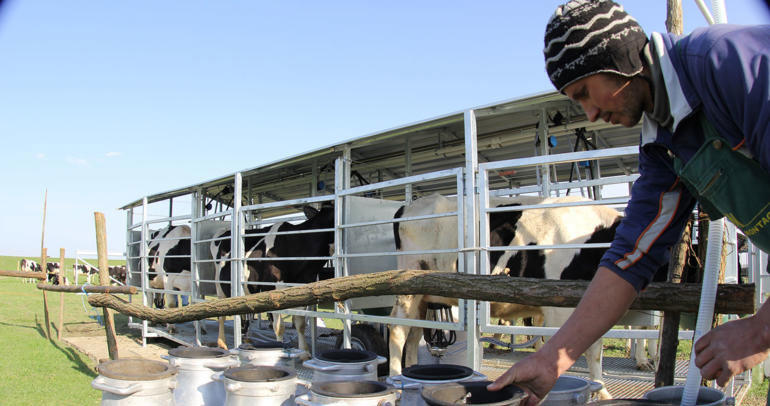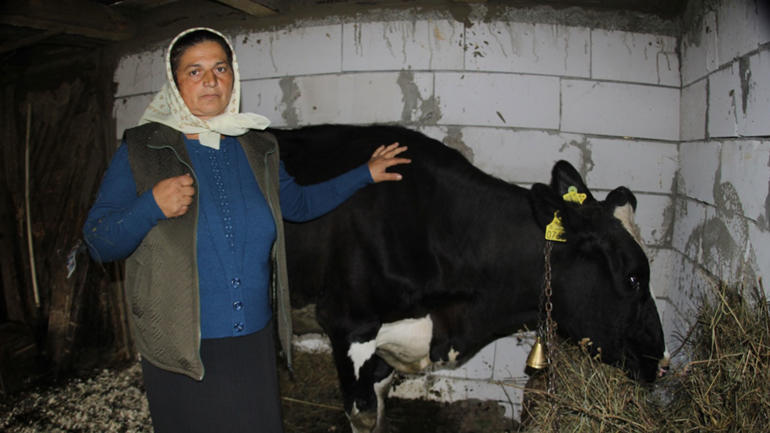This is one of a series of case studies developed by WBCSD and the Just Rural Transition to examine how large agribusinesses empower and engage SME suppliers and stakeholders to reach their sustainability goals. These examine the business case for supplier empowerment; what good policy looks like; and challenges and solutions involved in engaging suppliers. The cases identify best practices around how procurement can support a company’s sustainability priorities and performance. Click here for a synthesis that identifies key themes and recommended action from the series of case studies.
Background and business case context
Delivering healthy products and purpose-led brands
The Danone Ecosystem organization objective is to catalyze and develop projects that advance the public interest in ecosystems where Danone operates. Since 2009, they have co-created +100 projects that strengthen inclusion and environmental sustainability, providing organizational know-how, technical expertise and financing support. Projects developed by Danone Ecosystem respond to local challenges linked to sustainable sourcing and regenerative agriculture.
On the other hand, Danone is an international food products business built on four business lines: Essential Dairy and Plant-based Products, Waters, Early Life Nutrition, and Advanced Medical Nutrition World. Danone’s is operating in 120 countries around the world, and did €24.4bn in sales in 2021.
As an international food products business, supporting smallholder milk farmers is a key priority.
Empowering smallholder dairy farmers
In Romania, 80% of milk producers own less than 10 cows, appointing Romanian smallholder farmers has central in delivering a qualitative and sustainable milk sourcing. Yet, they face several challenges, one of them being staying up to date with best practices, which in turn compromises yield and product quality. The milk produced did not always meet EU minimum standards.
Solution: Support local small-scale farmers
To counter this, Danone Romania co-created with the support of Danone Ecosystem, Polaris and Open Fields Foundation the Chance for All program to support the productivity, resilience and livelihoods of small Romanian milk producers.
Case study: Chance for All
Multistakeholder program reaching 500 farmers
The Chance for All program has taken a multistakeholder approach to support and train smallholder dairy farmer suppliers in Romania since 2012. Involving more than 500 farmers, with a total project cost of €7.0m, it has built capacity to increase the quality and quantity of milk produced on the farms, while promoting sustainable farming practices.
This work was led by Danone Romania, in partnership with Danone Ecosystem, which provided expertise, project structure and financial support. Local service providers and partners (Polaris and Open Fields NGO) implemented the project on the ground.
Danone Ecosystem is an endowment fund created by Danone to strengthen and develop general interest missions within the Danone ecosystem, which is defined as all the economic, environmental, social and/or territorial stakeholders of Danone and its subsidiaries.
Improving productivity and quality
The Romanian smallholder dairy sector has traditionally suffered from low yields and producing poor quality milk that did not always meet EU standards. A key initial aspect of the Chance for All project was the provision to farmers of highly productive cows and access to modern milking methods, to help level up productivity and quality with larger producers. Farmers were encouraged to grow the size of their herds and taught how best to use artificial insemination techniques to keep their cows productive.
32 transportable milk parlors were provided by Chance for All and shared between farms, allowing them to milk cows in the pasture, if necessary, boosted production productivity by 18% alone.
Separating milk into small batches before testing to EU quality standards at collection centers and then aggregating into larger tanks before transportation to Danone’s factories has helped to significantly reduce the amount of milk rejected by failing to meet the standards.
Training and best practice sharing
The Chance for All program has also provided farmer training in how to use modern milking practices to maximize output. For example, the farmers are shown the benefits of using a diverse mix of enriched feed, which leads to higher productivity and quality of milk.
Farmers have also been piloting several circular or regenerative agriculture practices that have reduced waste and enriched soils.
The installation of manure platforms means farmers can use manure for fertilizer and cuts pollution. The manure is rich in nitrogen, phosphorus, potassium and other nutrients, meaning a natural product can replace chemical fertilizers.
Specialist training on regenerative agriculture practices including use of non-grass crops on pastureland has been provided for 70 farmers – with over 1,000 hectares converted to regenerative practices. A tree planting scheme, in part to provide summer shade for cows and to sequester carbon has meant 31,000 trees have gone into the ground, with a projected 150 tonnes of CO2 removed from the atmosphere every year. Regenerative agriculture pilot projects have led to a 52% cut in CO2 emissions at the farms taking part.
Local associations and connections
The Chance for All program has facilitated the creation of new farmer associations, and these have successfully collectively secured grant funding and subsidies from the Romanian government and the EU of €4.1m, helped to enable access to private sector finance, gained access to public pastureland and enabled peer-to-peer knowledge sharing.
Summary
Famers taking part in the program have seen their incomes increase by ~70% since 2012, while rolling out sustainable and regenerative practices that will help secure the long-term stability and viability of the farms.
The farmer associations created by the project have helped with best practice sharing and to ease the administration necessary to access grants and funds from the EU and others.



